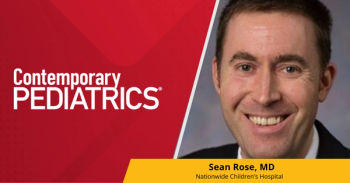
Parents find children are self-conscious toward their appearance
A recent poll from CS Mott Children’s Hospital showed a large percentage of parents have noticed their children experience negative feelings toward their body image.
In a recent study, many parents noted that their children were self-conscious about their body image. This has implications on the mental and emotional health of children, according to investigators.
The CS Mott Children’s Hospital distributed their National Poll on Children’s Health to parents, asking them about how their children, aged 8 to 18 years, perceived their appearance. Nearly 2 out of 3 parents reported their children feeling self-conscious about their appearance.
Of the children, 32% were self-conscious about acne or any skin condition, 31% about weight, 27% about hair, 18% about teeth, 17% about height, 12% about facial features, and for girls, 20% about breasts. Children aged 13 to 18 years were observed with a greater chance of being self-conscious about their appearance than those aged 8 to 12.
Teenage girls had the highest self-conscious rate at 73%, followed by teenage boys at 69%, younger girls at 57%, and younger boys at 49%. Among the parents of children self-conscious about their appearance, 27% felt it had a negative effect on the child’s self-esteem, and 20% on willingness to participate in activities.
Photo avoidance was reported in 18% of self-conscious children, while 17% hid their appearance with clothing, and 8% limited the food they ate. These actions were more often seen in teenagers than younger children.
Children have been judged on their appearance by others as well, according to parents. From strangers, 28% of parents reported unfair treatment, while 12% reported unfair treatment from other family members, 12% from teachers, and 5% from health-care providers. Over 60% of parents talked with their children about the incident, while about a third kept their children away from the person who made the comment, and 27% spoke directly to the person.
More parents reported their children feeling self-conscious from in-person interaction than social media, with 43% being more affected by in-person interactions, 41% affected equally by both, and 16% more affected by social media.
Cases of low body image have been linked to worse mental and emotional wellbeing. While often viewed as a problem mainly in teenage girls, results from the survey show that the issue is far wider. The focus point of one’s appearance was also varied, with weight being the most common but many other factors affecting body image.
Investigators recommended parents take steps to support their children. This includes telling their children about their past struggles with self-image, talking about physical changes that occur during puberty, and not making negative comments on their own appearance.
In cases where a child wants help changing their appearance, parents can schedule a dermatologist appointment for acne, offer healthier family meals, or encourage them to try a different hairstyle. When a child does not want to change their appearance, investigators warned parents that a suggestion could be seen as indication that something is wrong with their current appearance.
Social media has a major impact on how children view themselves. Many photos are altered before they are posted and may not accurately portray an individual’s appearance. Advertisements can also focus on products said to fix issues children and adolescents may have with their appearance. Investigators recommended parents monitor social media trends and help their children determine which photos are genuine and which are altered.
Reference
Parents' perception of their child's body image. Mott Poll. September 19, 2022. Accessed September 19, 2022.
Newsletter
Access practical, evidence-based guidance to support better care for our youngest patients. Join our email list for the latest clinical updates.






